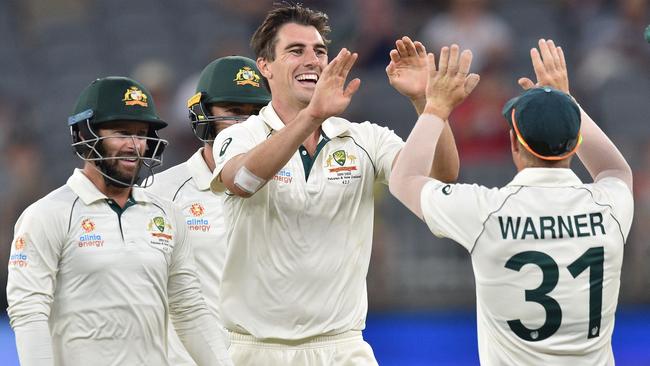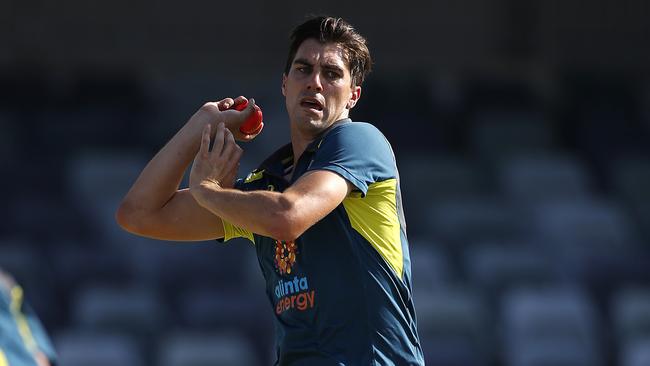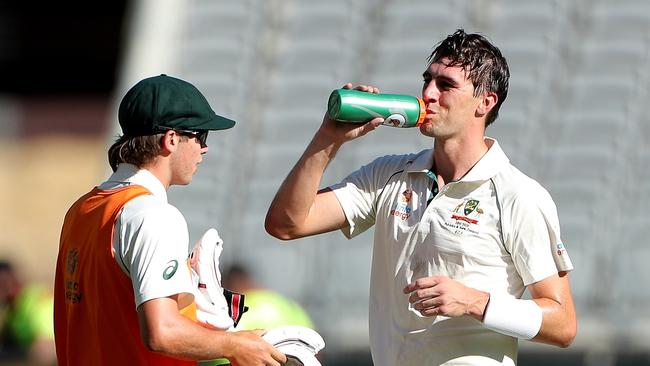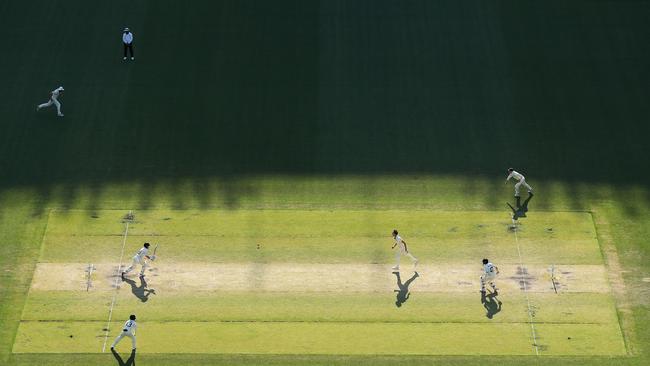Pat Cummins tried to ignore IPL advances but Cricket Australia’s contract system forced his hand
Pat Cummins would rather have done all his work for Australia and ignored the IPL. But CA’s inflexible and outdated contract system made it an offer he couldn’t refuse. CA need to react to the new T20 reality, and fast.

Cricket
Don't miss out on the headlines from Cricket. Followed categories will be added to My News.
Pat Cummins’ Indian Premier League super-deal is a thrilling but chilling moment for Australian cricket as it spotlights the flaws in a contract system out of touch with the modern world.
The deep irony of Cummins’ $3.17 million IPL deal is that his Plan A was not to go there.
That’s why he approached Cricket Australia for a long term deal rather than the traditional one-year contracts which are decided by a rankings regimen.
Stream the AUS v NZ Domain Test Series LIVE & Ad-Break Free During Play on KAYO with FOX CRICKET’s unmatched commentary line-up. New to Kayo? Get your 14-day free trial & start streaming instantly >
He wanted to do all his work for Australia but they knocked back his contract request which was a shortsighted move and a significant fail for the system.

The trouble with Australia’s contract system is it was formulated a couple of decades ago in a world where there was no T20 cricket.
With no rivals for player talent Australia could basically offer whatever they wanted and the players just had to suck it up.
There was no need to offer long-term contracts because they had nowhere else to go.
But the world has changed, a fact first spotted by former high performance manager Pat Howard, when, after a few months in the job, he remarked, “we don’t own them anymore.’’
You can say that again.

It’s always a chastening moment for an organisation when it realises that someone else is paying your number one employee more than you are – for working the equivalent of one day a week.
That is now the case with Cummins.
He may be Australia’s No.1 contracted player but he can earn $600,000 more for two months work in the IPL than he can in 10 months playing for Australia where his wage is around $2.5 million.
And if you think the gap between India and Australia is wide, multiply that by 10 to get the picture in some of the smaller nations.
Given the sort of money he is being paid by the Kolkata Knight Riders, Cummins can be expected to be front and centre in every activity from training camps to promotional activities. They will ask a lot of him.

His pin-up boy charm will be exploited to the maximum just as it was in India with another debonair fast bowler, Brett Lee. And he will be doing it at a time when he should be resting and getting ready to play again for his country.
Australia should change its contract system to ensure there is no repetition of this saga.
Most contracts should be one year deals but longer term deals should be offered to key men.
For goodness sake, it’s not as if you are committing yourself to a Buddy Franklin-style decade long deal.
In most professional sports, two years is a short contract not a long one.
Can you imagine the fallout if Cummins gets injured in the IPL and does long-term damage?

For all that, there are some significant benefits to Australian cricket of Cummins’ breakthrough deal.
At a time when cricket is in a fierce war with the football codes for rising teenage talent – especially the tall boys who are fast bowlers and likely AFL stars – cricket can showcase the fact that if you play their code the big bucks will set you up for life in a few years if you truly crack the big time.
Cummins will earn around $6 million a year from his playing fees at a time when no AFL or rugby league player can top $2 million.
Cricket has traditionally lost a lot of these wars because young sportsmen simply do the maths – the numbers say you are a far better chance of getting a contract with a senior football team than playing cricket for Australia.
And it’s great that a fast bowler has got such a deal, particularly one who is truly on top of his craft and is such a decent fellow.
Cricket, in so many ways, has become a batsman’s game.
It’s an uplifting thing for the game when a bowler’s name is up in lights.
THE GOOD
The Optus Stadium deck in Perth. It’s got life and bounce and it also deteriorates to add a deliciously intense flavour as the match wears on. It’s the best deck in the country – and it’s only two years old.

THE BAD
The new 90 second time out in the Big Bash. At a time when football codes are meeting to cut time out of breaks, cricket adds another one. It is the most nonsensical change of recent times.
THE UGLY
The year 2019 for Australian rugby. With a poor World Cup, a change of coach to Kiwi Dave Rennie and the Israel Folau affair the only consolation is that things can only get better next year.
Originally published as Pat Cummins tried to ignore IPL advances but Cricket Australia’s contract system forced his hand
